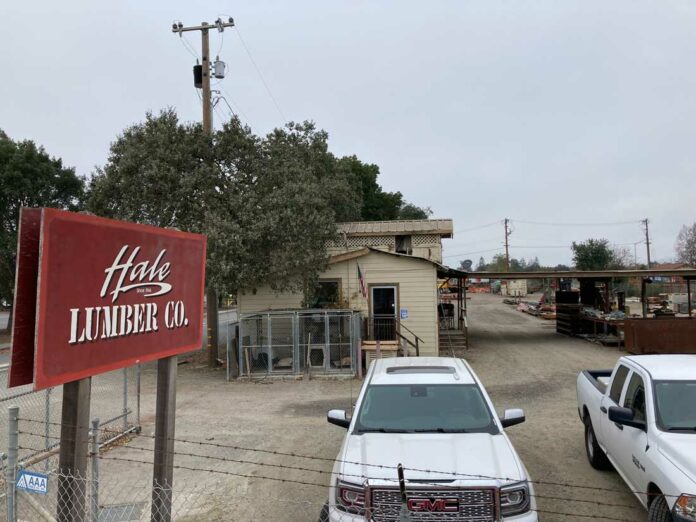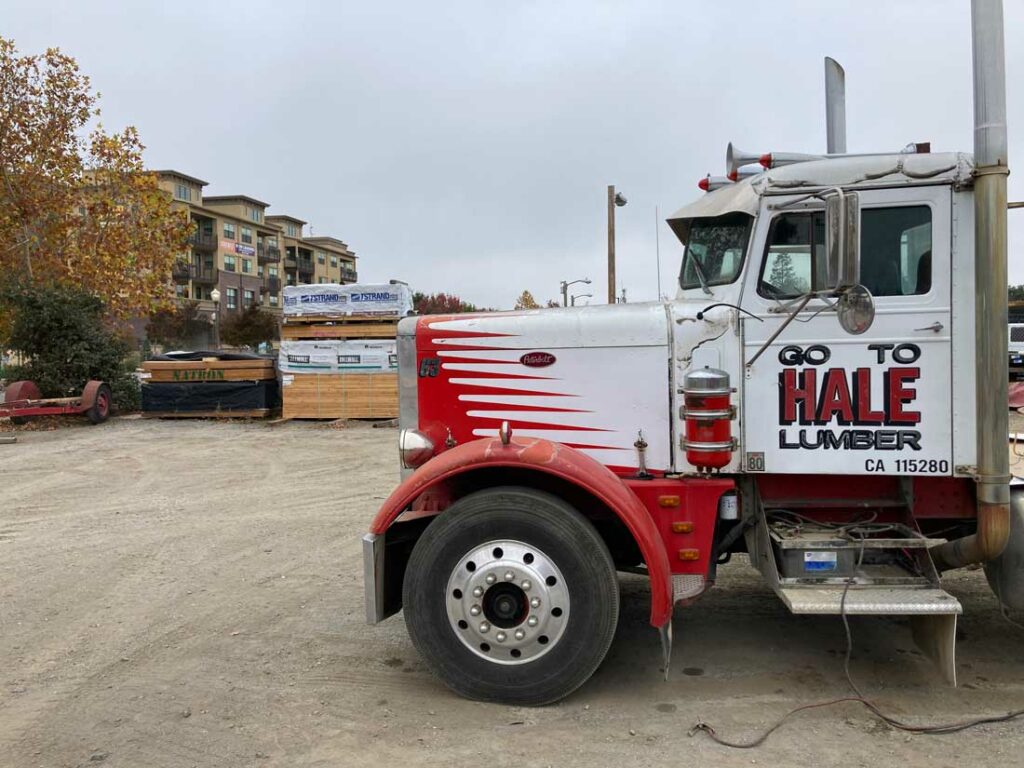
Hale Lumber Company—a mainstay Morgan Hill family-owned business established in 1945—is the latest local company to close up shop to make way for the city’s more pedestrian-friendly vision of the downtown area.
On Friday, Dec. 3, the lumberyard at the corner of Depot Street and East Dunne Avenue was mostly empty of inventory and the usual stream of customers’ truck traffic. That was just two days after the Morgan Hill City Council approved the final map for a 49-unit residential development at the site, and announced a sale of the property to an unidentified developer was in the works.
All that remained at Hale Lumber last week were some equipment, trucks and shop facilities.
Bob Traurig, one of Hale Lumber’s co-owners, said they plan to have the business fully moved off site by the middle of this month in order to make way for the new owner’s development project.
“The city wanted to develop it, and it’s time. So it works out,” Traurig said.
Hale Lumber was established in 1945 by M.P. “Skipper” Hale. In 1960, Joseph Hammond, Sr., purchased the business, which has remained connected to the Hammond family ever since, Hammond’s son, Bob Hammond, told the Times.
Bob Hammond, who retired from Hale Lumber about 20 years ago, worked for his father since about the time he purchased the business. Then Bob and his brother, Joe Hammond, purchased the shop and property from their father in 1975.
The Hammond brothers later “sold it off little by little” to Hale Lumber’s most recent owners—Traurig and Bob’s son, Rob Hammond.
“We specialized in custom builders, not tract work,” Bob Hammond said. He added that he “saw it all” over the years when it comes to the ups and downs of the construction market, which is directly tied to lumber sales.
Notable events that impacted business, Hammond explained, include the city’s first growth control ordinance in the 1970s; sky-high U.S. interest rates over 20% in the 1980s; the housing crash of 2009; and, of course, the current pandemic.
“We survived,” Hammond said. During the business’ “heyday” of sales in the 1970s, Hale Lumber employed up to 10 people, he added.
At one time under the Hammond brothers’ ownership, Hale Lumber wanted to add a retail hardware store to the business. But the city declined to allow the owners to rezone the property for such a use, Hammond said.
Hammond added that it’s “a little emotional” to see Hale Lumber close after 76 years. But he said he has “no remorse.”
“I put my life there (but) the business climate has changed so much with state laws and trucking, making it very difficult to run a business,” Hammond said.
Traurig has been an owner of Hale Lumber since 1992. He echoed Hammond’s description of the volatility of the market since then.
“We always played along because we’ve been here a long time,” Traurig said.
Morgan Hill City Hall’s long-term plans for the Hale Lumber property have not been a secret. Since the early 2000s, city planners have recommended zoning changes for Hale Lumber and other former industrial properties in the downtown, to accommodate more mixed-use residential, retail and dining uses that are compatible with a pedestrian-friendly, self-contained style of neighborhood.
Since the city council approved the Downtown Specific Plan in 2008, numerous family-owned businesses have moved out of the neighborhood as developers have acquired properties to enact the city’s plans.
A mixed-use project was first proposed at the site of Hale Lumber in 2017. In January 2019, the Latala Group acquired 49 housing allotments through the city’s residential development control system and entered into a development agreement with the city.
Although the current council is divided on the housing proposal for the Hale Lumber site, the body voted 3-2 Dec. 1 to approve the project’s final map. Council members Yvonne Martinez Beltran and Rene Spring voted against the map.
Also at the Dec. 1 council meeting, it was revealed that the Latala Group will not be the developer for the project they applied for. The local contractor recently agreed to sell the project to another developer, according to city officials.
A key aspect of the city’s downtown vision has long been to realign the intersection of Depot Street and East Dunne Avenue. The recently approved plans for the Hale Lumber property will make that happen, with Depot Street zigzagging through what is now the Community and Cultural Center parking lot to line up with Dunne at the existing traffic light.
Morgan Hill Mayor Rich Constantine acknowledged the mixed feelings one might encounter at the departure of Hale Lumber.
“Anyone who has been in Morgan Hill for any length of time knows about Hale Lumber. It’s always sad to see an institution leave (but) what’s going to become of that spot is going to be a legacy they can be proud of,” Constantine said.








